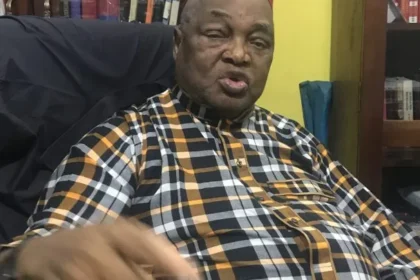Photo: Babatunde Esanju
TechNaija FM, the fast-growing podcast highlighting African technology innovation, is continuing its mission to tackle some of the continent’s most pressing engineering challenges with a recent episode focused on design-led engineering, a methodology experts say is essential for building reliable FinTech systems across Africa.
In the recent Episode 12, hosted by UK-based Lead Software Engineer and TechNaija FM Founder, Babatunde Esanju, the platform featured an in-depth discussion with Chief Technology Officer of Terraswitch, Oluwatobi Immanuel.
The episode examined how user-first engineering can help solve persistent problems in Africa’s payment ecosystem, including inconsistent infrastructure, complex user journeys, and unreliable transaction systems.
Esanju said the episode is part of TechNaija FM’s commitment to providing actionable insights for Africa’s growing community of engineers. “TechNaija FM exists to document, dissect, and solve Africa’s unique tech problems,” he said. “Every episode brings practitioners who are building real systems, not just theories.”
Immanuel, a leading voice in African FinTech, described design-led engineering as the foundation for systems that scale effectively. “Design-led engineering means building from the experience outward,” he said.
“If you don’t understand your user, you cannot build for them. Africa’s markets demand that engineers think deeply about culture, behaviour, and constraints before touching code.”
He added that many recurring fintech failures, from failed transactions to system unreliability, stem from solutions not built with the African user in mind. “You don’t start with microservices or monoliths. You start with what the user needs,” he said.
Immanuel explained that this philosophy guides his work at Terraswitch, where he leads an enterprise payment gateway that processed more than N2bn in its first year. The company’s systems are designed to withstand unreliable networks, diverse payment behaviours, and the infrastructural challenges unique to the region.
Esanju said such conversations are critical for developing a new generation of African engineers capable of solving real-world problems. “You can’t copy Silicon Valley and expect it to work everywhere,” he said.
“TechNaija FM unpacks the methods, decisions, and lessons behind Africa’s most resilient systems so others can learn and build better.”
The episode also explored gaps in Africa’s tech ecosystem, including the need for stronger collaboration between designers and engineers, better documentation practices, and context-aware system architecture.
Immanuel emphasised that Africa’s diversity, culturally, economically, and infrastructurally, requires systems intentionally designed to adapt to local realities.
“The future of African FinTech depends on systems that are intuitive, inclusive, and reliable,” he said. “We’re building not just technology, but the continent’s digital infrastructure.”
TechNaija FM has quickly become one of Africa’s most influential platforms for technical insight, featuring CTOs, founders, and senior engineers from across the continent.






